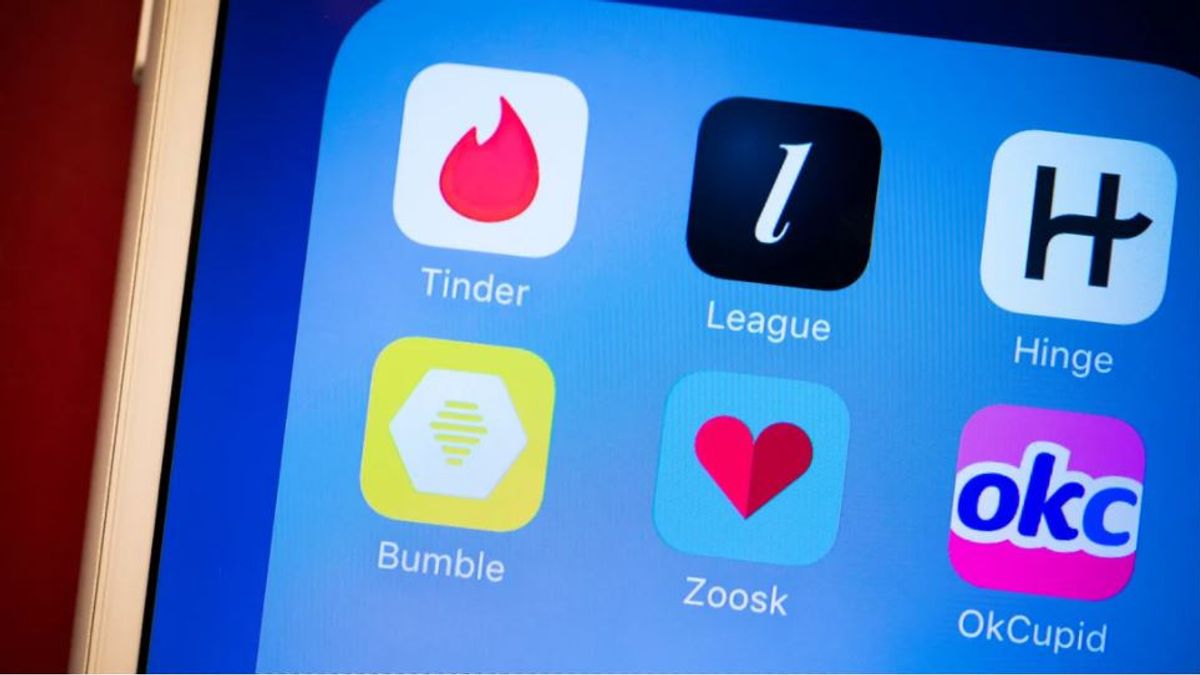JAKARTA – Kaspersky released the results of an in-depth study of nine popular dating applications. The researchers found that dating apps are becoming more secure from a technical point of view, especially when it comes to data transfer.
However, the Russian anti-virus company also concluded that the app still poses a significant risk in terms of exposing too much personal information about users. This leaves users vulnerable to threats such as cyberstalking and doxing.
Online dating has had a huge boom, especially during the pandemic. Tinder hit a record 3 billion swipes in a single day in March 2020. While OkCupid saw a massive 700% increase in March to May of the same year.
Kaspersky analyzed nine popular and highly-rated dating apps with a global user base: Tinder, Bumble, OkCupid, Mamba, Pure, Feeld, Her, Happn and Badoo. They found that dating apps are becoming more secure than in 2017, while major privacy risks remain.
In 2017, four applications studied made it possible to intercept data sent from applications, and many used the unencrypted HTTP protocol.
In 2021, the situation has improved significantly. No application is learned using HTTP, and no data is sent if the protocol is not secure.
However, significant privacy concerns remain with dating apps. Most dating apps allow users to register their account with one of their social networking sites, such as Instagram, Facebook, or Spotify.
It was actually considered unsafe. If a user chooses to do this, then their profile is automatically populated with information from the social networking site, such as a photo and profile information. Users are also invited to share information such as their workplace or university or school.
All the data mentioned above makes it easy to find the social media accounts of the dating app users. Even a number of other personal information, but depending on their privacy settings in the account.
In addition, apps like Happn, Her, Bumble, and Tinder also require users to share their location. Some apps, like Mamba, share the user's distance to the nearest measurement. Happn has an additional function that allows users to see how many times and at what location their match met them.
Access to data such as a user's location, workplace, name, contact information, etc., makes them vulnerable to cyberstalking. Even physical stalking, as well as doxing, where previously private information is published to embarrass or harm the user or victim.
Mamba is the only app that lets users blur their photos for free. While Pure is the only one that prohibits users from taking screenshots of chats. This allows users to share their chats and photos without permission potentially for extortion or doxing purposes.
Many applications have added a paid version. It includes additional options that often increase user security. For example, in the paid versions of Tindr and Bumble, users can manually set their location to a specific region. This makes it much more difficult for one to determine the user's exact location.
Some paid versions of apps, such as Happn, offer users an "incognito mode". In this version users can hide their profile from people they don't know and strangers.
"Finding a balance between establishing a digital presence and maintaining online privacy has always been a challenge, and the shift to online dating creates another area where users must determine the best way for them to establish a connection while protecting their security," said Tatyana Shishkova, security expert at Kaspersky.
"Thankfully, what we've seen over the last few years is that dating apps are moving in the right direction. They allow users to connect more securely. They work to keep data safe, and, in the paid versions of many apps, users can -things like determining their location manually or blurring their photos,” added Tatyana.
“Hopefully, in the future, this option will be available in all apps for free. The best thing users can do to stay safe is to be careful with the data they share about themselves, both on their dating profiles and in conversations."
Kaspersky has some predictions regarding dating apps, such as the use of AI to protect users from fraud and the creation of verified accounts. Users can find these and more predictions about the future of dating and love, as well as submit your own predictions, through the Earth 2050 project.
You can also learn more about dating app security on Securelist.
To say it's safe to use dating apps, Kaspersky experts recommend the following:
1. Don't share too much personal information (last name, photos with friends, political views, etc.) on your profile
2. Do not bind/link other social media accounts to your profile.
3. Select your location manually, if possible
4. Use two-factor authentication, if possible
5. Delete or hide your profile if you no longer use the app
6. Use the built-in messenger in dating apps. Switch to another messenger only when you trust your partner. If you finally decide to do so, organize the chat in a way that keeps personal information safe.
7. Use a trusted security solution on your device, such as Kaspersky Security Cloud. This will help detect malicious or suspicious activity on your device, as well as check the security of the URLs you visit.
The English, Chinese, Japanese, Arabic, and French versions are automatically generated by the AI. So there may still be inaccuracies in translating, please always see Indonesian as our main language. (system supported by DigitalSiber.id)













